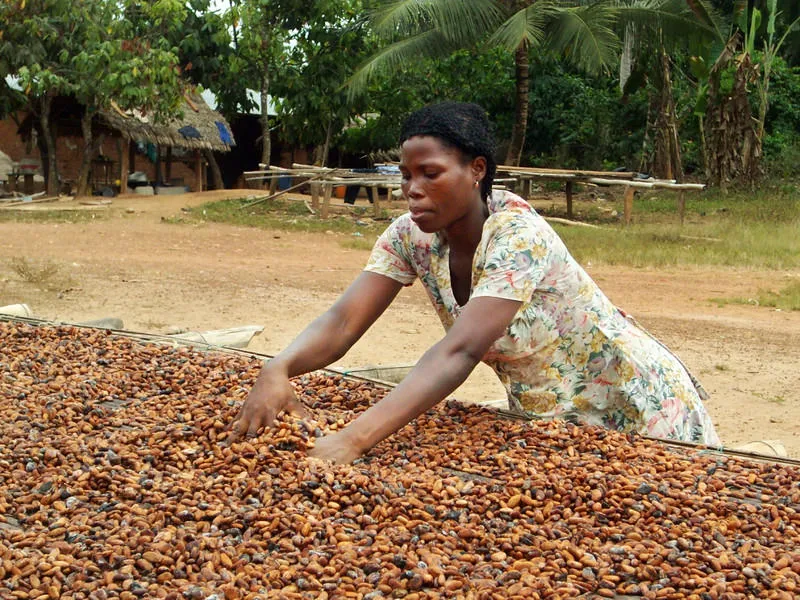There is no place for child labor, forced labor, discrimination, and workplace violence and harassment on farms that produce Rainforest Alliance Certified products. And while there has been progress over the last couple of decades to address these issues, we know gender inequality and human rights abuses still exist in the production of commodities including tea, coffee, fruits, and cocoa. The reasons for this are complex—multi-dimensional poverty, lack of social protection and rule of law, and systemic inequality are just some of the issues that contribute to the problem.
Our years of experience have shown us, however, that prohibition of these human rights violations alone is not enough. In fact, immediate decertification when abuses are confirmed with no concrete steps to help the certificate holder address the problem, often drives the issues underground. This makes them harder for auditors to detect and further perpetuates the problem.
That is why our 2020 Certification Program promotes an assess-and-address approach and grievance mechanism for tackling human rights issues. This new, risk-based system focuses on prevention, engagement, and improvement and incentivizes farmers and companies to tackle human rights issues rather than hide them. It also requires farms and farmer groups to promote gender equality and women’s empowerment.
Testing the assess-and-address system with pilots in Ethiopia, Malawi, and Ghana
At the end of 2020, we launched pilots to test the implementation of new requirements and tools related to the assess-and-address approach, grievance mechanism, and gender equality at two coffee farmer groups and coffee estates in Ethiopia, one tea trust (farmer group) and estate in Malawi, and at two cocoa farmer groups in Ghana.
As the Rainforest Alliance Certified farmer groups and estates involved with these pilots implement the new requirements and tools, they are training their workers and members. By the end of 2021, approximately 2,500 farm workers and 3,500 farmer group members in Ethiopia and Malawi, as well as 2,000 cocoa farmers in Ghana were trained on human rights issues through the pilots.
Our goal is to understand how these three systems can work together and strengthen each other to identify and address risks and cases of human rights issues. The pilots will also give us valuable insights on how to improve guidance and training and show us where adjustments may be needed to adapt to local contexts.
External partners, like local NGOs and the Tea Association of Malawi, are also active participants in the pilots, sharing feedback and input to help us improve our tools, guidance, and training. These actors will also form the basis of a network that will support the farms and farmer groups to address gender and human rights issues in a structural way.
Piloting the system in Ethiopia and Malawi: committees and mock audits
At the beginning of the pilots in Ethiopia and Malawi, three committees were established for each participating certificate holder: one for assess-and-address, one for the grievance mechanism, and one for gender equality. Committees are made up of trusted workers or farmer group members and include both men and women. Together with farm and farmer group staff and management—and in Malawi, with representatives from local NGOs and organizations as well—these committee members are receiving training on gender equality, human rights, and the requirements and tools of the Rainforest Alliance 2020 Certification Program.
Once they completed training, the committees were coached on how to implement the requirements and an audit was conducted to test our new auditing processes and materials. These audits took place in May 2021. Based on the outcomes, we have identified improvements to make audit rules, guidelines and training more “user-friendly” and to better support auditors in auditing human rights issues.
Initial feedback from the pilots show us that farmers and workers are now recognizing human rights issues like discrimination that used to be considered part of the culture. We have also found that local systems can be used to build the required committees and that local organizations and government can play an important role in capacity building and remediation.
Piloting the system in Ghana: a focus on child labor and forced labor
In March 2020, we launched a similar pilot at two cocoa farmer groups in Ghana to test the implementation of the assess-and-address system. This time we focused specifically on child labor and forced labor as these are common issues in the region. The farmer groups set up assess-and-address committees that include both farmer group management and members. In addition, they worked with 20 local cocoa farming communities to set up community-level assess-and-address committees and grievance focal points. To engage these communities, they even gave the assess-and-address system a catchy name in the local Twi language that means “expose it, resolve it, end it”.
The pilot in Ghana is already providing us with valuable information about how to best support farming communities to prevent and stop child labor and forced labor. Our partners have reported that farmers are more open to talking about risks when they know their farmer group will support them to tackle the issue—be it child labor, forced labor, gender-based violence, discrimination, or something else. Farm managers have also discovered risks that they did not think existed on their farms, including gender-based violence within families. Through the pilot, these communities are able to discuss these issues and identify and implement solutions together with support from local farmer groups.
The way forward: working together to tackle human rights issues head on
While there is much more work to be done to address human rights issues in agricultural communities around the world, these pilots are already helping us strengthen our approach. We are committed to working with farms, processers, communities, and actors across supply chains to correct human rights issues over time so that we can protect the children and workers that certification is designed to help.
Want to know more?
Learn more about our assess-and-address approach.


